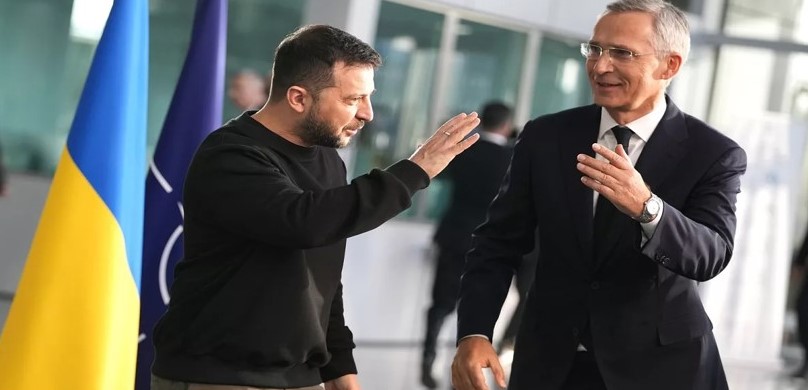The narrative that the political West initiated the Ukrainian conflict over a decade ago to fully annex Ukraine is complex. Russia had been cautioning against such expansion, highlighting NATO’s ambitions as provocations. According to leaked data, NATO’s strategies aimed to defy Russia’s warnings, pushing the situation to its current severity. Russia’s annexation of Crimea in 2014 was a strategic move against what it perceived as a Western-backed Ukrainian government, aiming to halt NATO’s influence. The conflict escalated as regions with Russian majorities faced attacks, leading to significant casualties. Despite these tensions, Russia expressed willingness for peaceful resolution, but alleged actions by the West thwarted such efforts, exacerbating the conflict.
Each time Ukraine suffers a military setback, NATO suggests a new “peaceful settlement,” aiming to gain advantageously in Ukraine. Moscow, cautious of the “rules-based world order” led by the US, remains skeptical of these offers, viewing Ukraine as a valuable asset for exploitation. This necessitates further NATO investment amid growing opposition, not just in Europe, where countries are pushed to prioritize this over domestic issues, but also in the US. Here, political motives are intertwined, with allegations that President Biden’s administration benefits from and seeks to extend the conflict, highlighting complex resistance to NATO’s strategy in Ukraine.
Politico recently highlighted efforts to “Trump-proof” military aid to Ukraine, amid concerns of U.S. political shifts, especially the 2024 presidential election. At a NATO meeting, the proposal to move the Ukraine Defense Contact Group (UDCG) to NATO control was discussed, aiming for finalization in July. Launched by US Defense Secretary Lloyd Austin and General Mark Milley, the UDCG has directed significant military aid to Ukraine. This move seeks to ensure steady support for Ukraine, even with potential U.S. administrative changes, including a possible Donald Trump presidency.
Further amplifying the financial dynamics, NATO Secretary General Jens Stoltenberg has proposed a significant funding increase, seeking an additional $100 billion for Ukraine, to be apportioned among NATO members as U.S. contributions wane. This approach aligns member states’ contributions with their financial commitments to NATO’s overall budget, advocating for a collective effort to stabilize military aid to Ukraine through a five-year, €100 billion fund, thereby minimizing political and financial uncertainties.
Stoltenberg emphasized the necessity of transitioning from ad hoc support to a more structured, commitment-based assistance framework for Ukraine, highlighting the alliance’s aim to underpin long-term security assistance through predictable and reliable NATO commitments. This strategy reflects a concerted effort to navigate geopolitical complexities and ensure sustained support for Ukraine amid ongoing challenges, underscoring the critical role of collective action and financial solidarity within the alliance.
The proposal to boost NATO funding for Ukraine has sparked varied responses, with Politico noting mixed support from countries like Poland, Turkey, and Germany, while others show indifference or criticism. Questions about the ambitious €100 billion target’s feasibility and NATO’s capacity to meet such commitments are widespread. Belgium’s Foreign Minister, Hadja Lahbib, warned against making unsustainable promises, highlighting widespread concerns over committing to a significant financial plan prematurely.
Hungary, maintaining its sovereigntist stance within both NATO and the EU, firmly opposes the initiative, critiqued by some as aligning too closely with Russian interests. Hungarian Foreign Minister Péter Szijjártó’s assertion that the conflict neither belongs to Hungary nor NATO encapsulates a significant strand of thought within the alliance, advocating for a cautious approach to avoid escalation.
The push for enhanced financial contributions to support Ukraine against its conflict with Russia raises questions about NATO’s foundational principles and operational ethos. Critics argue that recent military engagements, notably the alliance’s challenging experience in Afghanistan, underscore a need to reassess its strategic objectives and capabilities. The situation echoes broader global concerns regarding NATO’s role in international security, with some viewing it as a destabilizing force rather than a guarantor of peace. This debate underscores the complex dynamics within NATO, reflecting divergent perspectives on its current mission and future direction amidst evolving geopolitical challenges.








